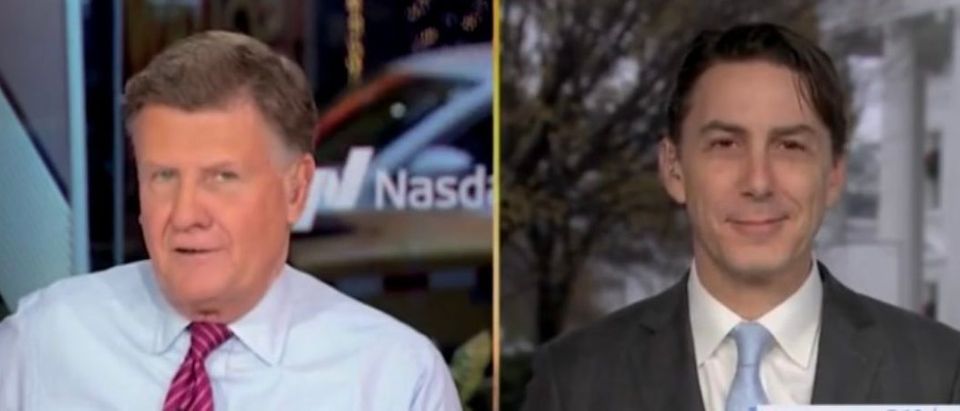CNBC anchor Joe Kernen confronted an energy adviser of President Joe Biden Wednesday on U.S. oil companies preparing to drill in Venezuela.
Kernen questioned U.S. Presidential energy coordinator Amos Hochstein on the Biden administration issuing a license to Chevron in late November to pump oil in Venezuela in an effort to lower record-high energy costs. The president has repeatedly called for the U.S. to end domestic drilling in order to transition to green energy.
“Part of the criticism from certain folks, Amos, is that now we’re talking to Chevron in Venezuela about increasing supply there, but still not, and I know you’re gonna say that we like the oil companies, we want them to produce, they’ve got 9,000 permits. I’ve heard it all so much. But it was ten days ago, the president again said, maybe you try to talk him out of it. I don’t know, I don’t know what you do when he says it. But when he said we’re gonna end drilling domestically, that causes the major oil producers to not want to invest long term … Can you give me a number … give me a number on how long,” Kernen said.
“Eventually, we’re going to be phasing out the use of oil and gas—” the adviser began.
“What does that look like?” Kernen interrupted. “You’re not going to want to invest any money in doing this if it’s two or three years from now, or even five years, Amos.”
WATCH:
Hochstein argued the U.S. will use oil for “several more years” due to gradual production and expensive investments of alternative uses. He said by 2035, the U.S. will likely still rely on oil production for vehicles, given that the administration’s goal is to make 50% of the car industry’s market electric vehicles (EV’s) in the U.S. (RELATED: ‘That’s Not An Accurate Take’: Doocy, Kirby Spar Over Oil Drilling In Venezuela Rather Than At Home)
Kernen argued the U.S. will likely rely on oil production for decades, and Hochstein added that oil companies need the ability to produce a sufficient quantity of oil in order for the economy to eventually steer away from fossil fuel reliance and drop the price of oil for consumers.
Kernen then criticized Biden for not addressing domestic oil or EV production with oil companies or Tesla CEO Elon Musk. The adviser argued that the oil drilled by Chevron will be bought by and shipped to U.S. consumers, providing no benefit to the Venezuelan regime.
“Is it faster to get a pay off in Venezuela than it is, here’s the thing, so he [Biden] doesn’t invite Elon Musk when he’s talking about EV’s, he doesn’t invite the major oil companies domestically to come to the White House to talk about increasing production, but we go to Venezuela. These are the things that critics would say don’t make any sense,” Kernen said.
“Joe, let’s put some water in that,” the adviser said. “The Chevron license in Venezuela was an incentive really to kickstart the process, the political process, at Mexico City which is a huge breakthrough that we were able to achieve through the talks between the regime and the opposition and that happened on Friday. The license in Venezuela is very small, the production is tiny, the amount of oil that will come to the United States is not all that significant, it will help some, but it’s not that significant.”
He said the administration has contacted U.S. oil companies about increasing refineries of their products with the purpose of lowering costs. Kernen argued that the companies will not invest in a higher amount of production if the administration is striving to end drilling.
“You blame it on Putin when it goes up but then you say, well, they can lower it at any time, so that doesn’t really make sense,” Kernen said. “I don’t know if I’d invest money in trying to increase production if you’re gonna end drilling. If you keep saying that…tell him to stop saying that. You get to see him from time to time, he only seems to listen to one side of the argument, the way out there side of the thing.”
The president vowed to end drilling at an event in New York in early November, despite the administration putting more pressure on companies to drill more. The administration has repeatedly claimed that there are 9,000 unused permits for companies to drill on federal land, though the industry has argued that many are unusable and in the midst of litigation processes.












